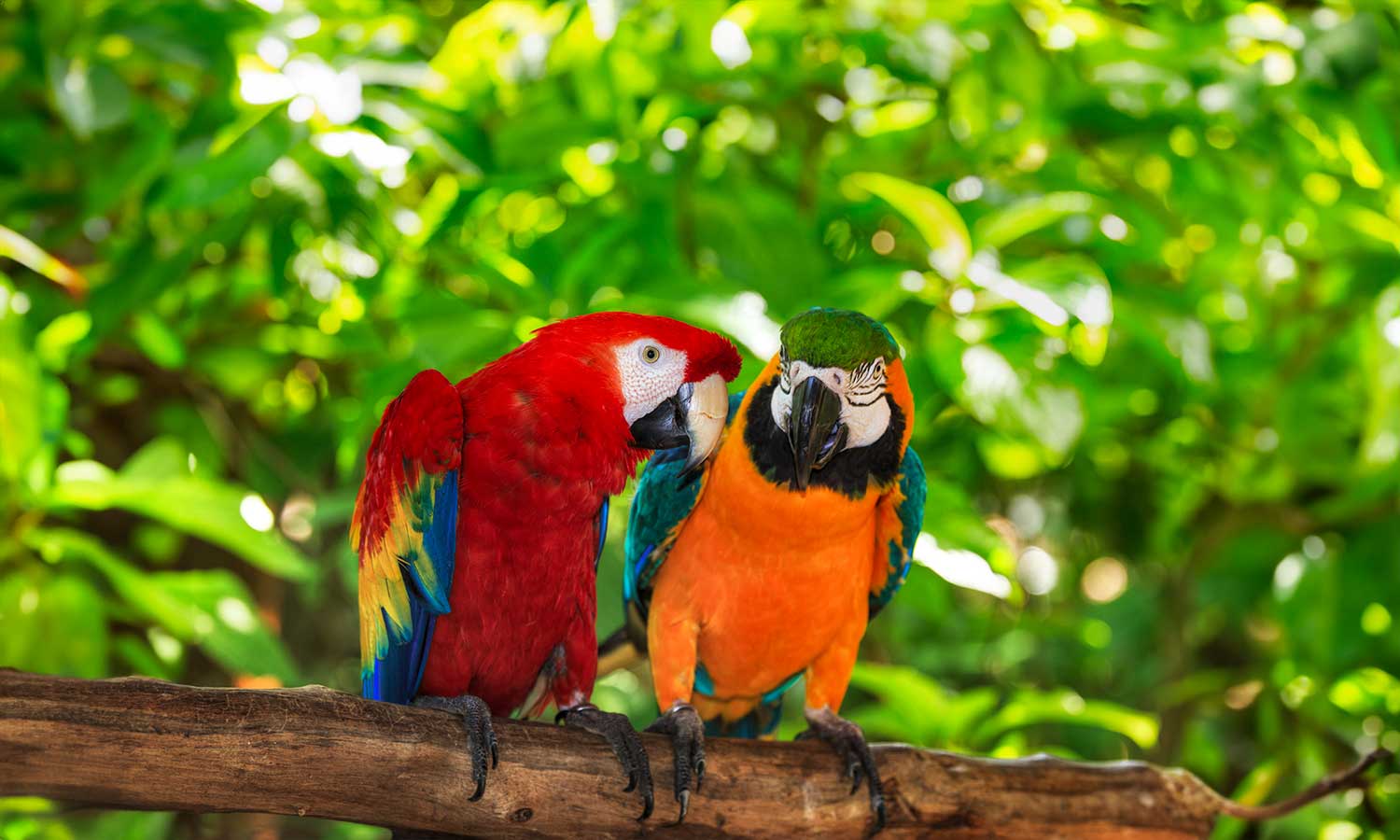Avian Care by Specialty Trained Avian Veterinarians
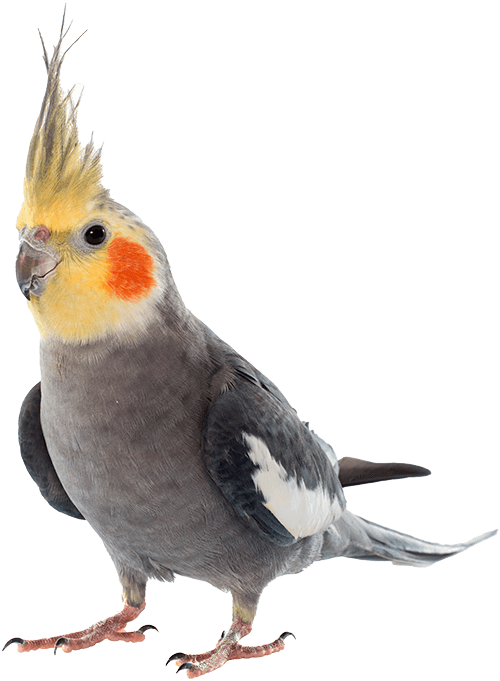
Are you considering adding a bird to your family? Birds of any species make for fun, fulfilling, but also complex companions. Before you welcome a feathery member to your family, make sure you have the time and resources to care for your bird throughout their life. They often have long lives and so require regular veterinary care to keep them in peak condition. Our skilled bird veterinarians in Grapevine have years of experience and specialized training working with avian patients. We hope to not only treat your bird and provide needed wellness care but also to educate you, so you can better understand the best ways to care for your bird at home.
Avian Wellness Exams
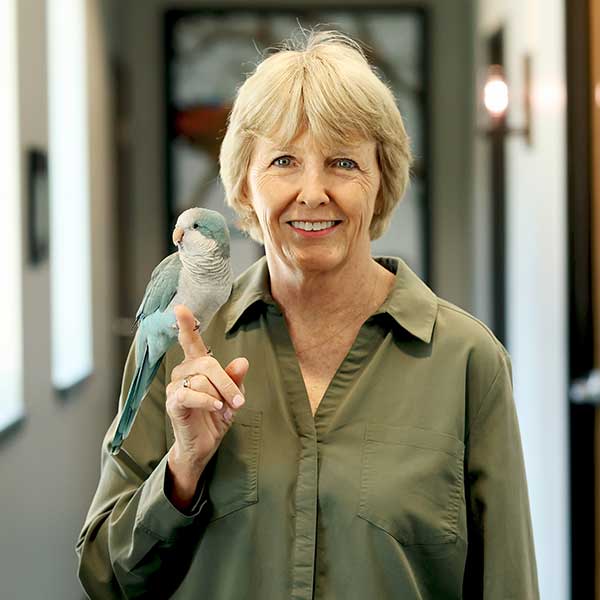
We recommend seeing birds every year but would strongly encourage biannual exams. Birds are very adept at hiding illness. They can often disguise it until the condition is very advanced and therefore much harder to treat. Routine exams help us catch diseases early when we can treat them more easily.
A typical avian wellness exam with your bird vet will include:- Physical examination
- Weight measurement
- Fecal analysis
- Blood work
Common Health Problems in Birds
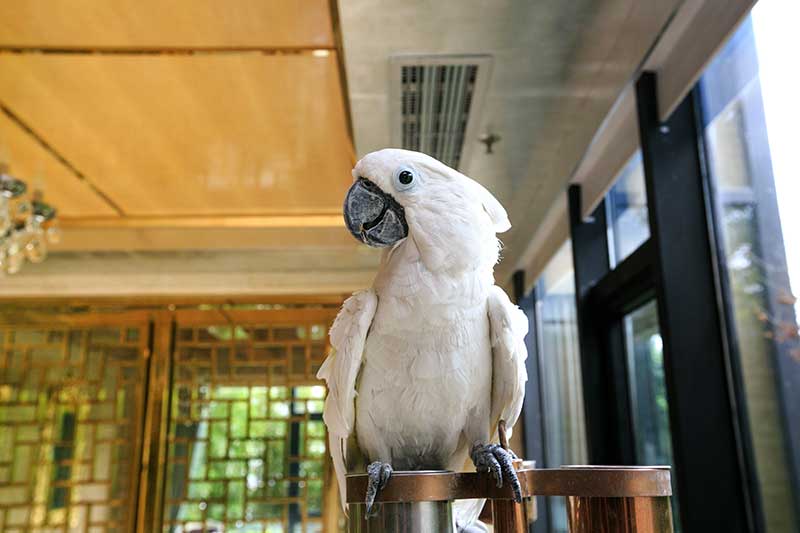
Birds can develop different health conditions throughout their lives. Below are several common conditions in birds:
- Egg-binding in females—Even without a male present, some female birds can become egg-bound. The condition occurs when your bird is unable to pass the egg naturally, and without treatment, it can be deadly.
- Poor nutrition—Birds in the wild eat a variety of foods including nuts, seeds, berries, and insects. Unfortunately, in captivity, many birds are fed seeds exclusively, contributing to serious malnutrition and associated diseases. While pelleted diets can typically meet most of your bird’s nutritional needs, we can assess your bird’s diet and offer suggestions as needed.
- Feather picking—This is when birds voluntarily pull out their feathers from their body. It can occur due to an underlying medical issue, but often times, it is caused by improper diet, not receiving enough sunlight, lack of bathing for healthy skin or during the reproductive season. Yet, the most common cause of feather picking is boredom and thus, the development of a vicious behavioral cycle. Because the underlying causes of feather picking can be so complex, getting it under control requires a multi-targeted approach with the help of your bird veterinarian.
Signs of Illness
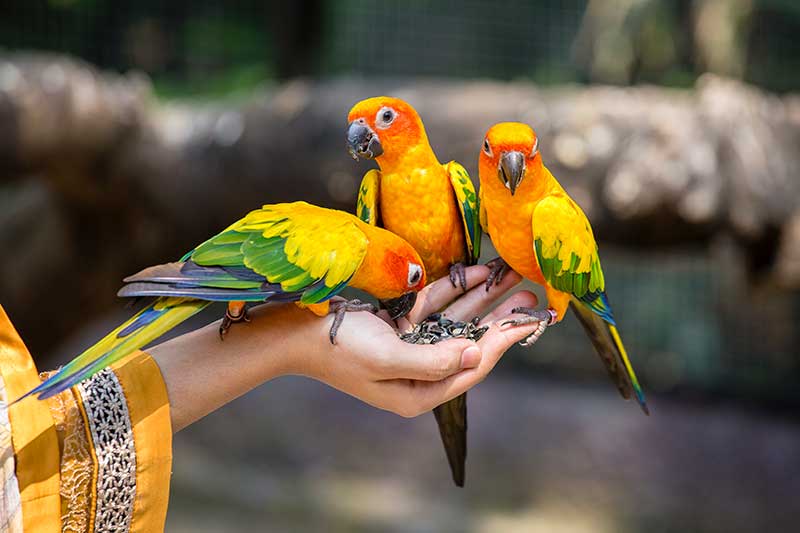
If your bird is ill, it will likely try to hide its malaise even from you. Yet, some subtle behavioral changes can indicate illness. Bring your pet bird to us if you notice any of the following:
- Fluffed and lethargic
- Sitting on the cage bottom
- Voice change
- Change in dropping color, consistency, or signs of blood
- Quieter or more vocal than normal
- Sudden weight loss
- ANY change in your bird’s behavior can be significant!
Highly Pathogenic Avian Influenza (HPAI)
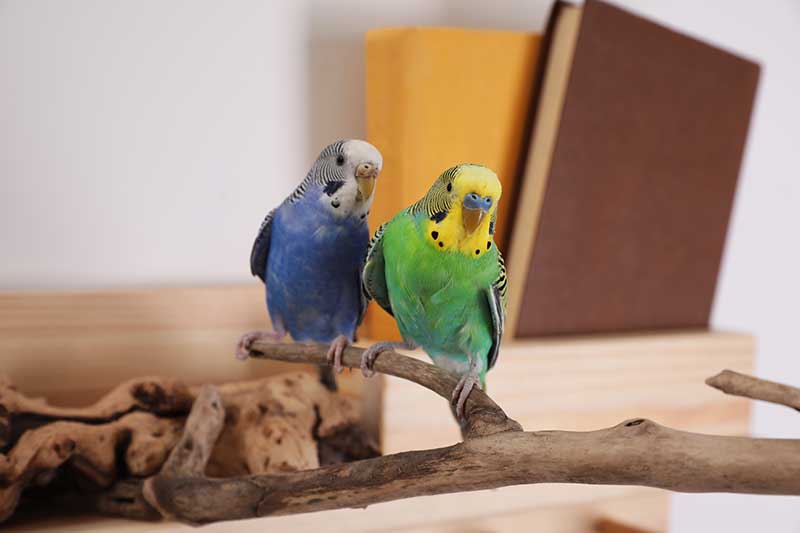
Highly Pathogenic Avian Influenza (HPAI) has been detected in the United States. However, as of late winter 2022, the disease has NOT been detected in Texas. This serious disease can affect not just poultry but other birds as well. The best way to keep your birds safe in the event of HPAI detection in Texas is to make plans to get and keep your birds indoors. This is especially important for those of you who keep poultry.
The United States Center for Disease Control and Prevention has stated that the recent Highly Pathogenic Avian Influenza (HPAI) detections do not present an immediate public health concern in the United States. There have been no reported cases of the avian influenza virus in humans. The proper handling and cooking of poultry and eggs to an internal temperature of 165 degrees ºF, which kills the bacteria and viruses, should be followed.
Federal and State Agencies are working together on surveillance and testing that are near the affected flocks. The United States has the strongest surveillance program in the world; and the USDA is actively looking for the disease in commercial poultry operations, markets that handle live birds, and in its migratory wild bird populations.
Anyone involved with poultry production, from the small backyard to the large commercial producer, should review their biosecurity activities to ensure the health of their birds. Information on biosecurity can be found on the Animal and Plant Health Inspection Service website.
Did you just welcome a new feathered member into your family? Or have you recently moved to the area? Schedule an appointment with us today so your bird can get the treatment they deserve from bird experts.

